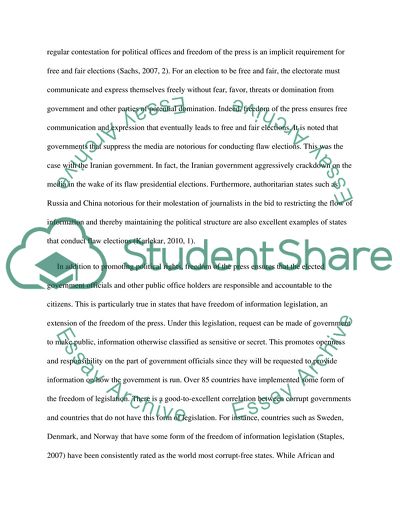Cite this document
(Freedom Of The Press, Democracy, And Democratization Term Paper - 1, n.d.)
Freedom Of The Press, Democracy, And Democratization Term Paper - 1. https://studentshare.org/media/1751607-freedom-of-press
Freedom Of The Press, Democracy, And Democratization Term Paper - 1. https://studentshare.org/media/1751607-freedom-of-press
(Freedom Of The Press, Democracy, And Democratization Term Paper - 1)
Freedom Of The Press, Democracy, And Democratization Term Paper - 1. https://studentshare.org/media/1751607-freedom-of-press.
Freedom Of The Press, Democracy, And Democratization Term Paper - 1. https://studentshare.org/media/1751607-freedom-of-press.
“Freedom Of The Press, Democracy, And Democratization Term Paper - 1”. https://studentshare.org/media/1751607-freedom-of-press.


